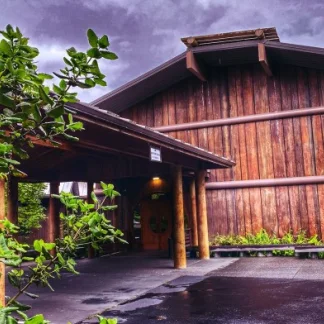United Indian Health Services
Arcata, California, 1600 Weeot Way, 95521
Available Programs
- Adolescence program
- Adult program
- Children program
- Program for men
- Program for women
- Young adult program
Insurance and Financial
- Medicaid
- Private insurance
- Self-pay options
- Financial aid
- Medicare
- Military insurance
About this Facility
United Indian Health Services, in Arcata, California, is an alcohol and drug rehab for American Indian youth, adults, and families. They provide intensive outpatient program (IOP), general outpatient (OP), and aftercare services. They blend American Indian culture and tradition with modern medical treatment models.
Outpatient treatment incorporates both the Native American Medicine Wheel and the 12 step philosophy to create a culture sensitive approach to recovery. Treatment includes individual, group, and family therapy, youth assessments, and referrals for higher intensity care as appropriate. Approaches include evidence based modalities and complementary treatments such as the use of traditional healers and monthly sweats.
Their aftercare program offers complete wraparound care to encourage long term recovery and may include relapse prevention planning, ongoing life skills training, alumni support groups, housing and employment support, and connections to community resources.
United Indian Health Services accepts a variety of health insurance plans, such as Cigna, Humana, Bright Health, Aetna, United Healthcare, BlueCross BlueShield, and more. Because insurance plans vary, be sure to verify your insurance coverage and out of network benefits by contacting your insurer directly.
Contact us for more information: (707) 825-5000

Contact United Indian Health Services
Connect with United Indian Health Services by calling their admissions team directly.
(707) 825-5000 Website Get Directions